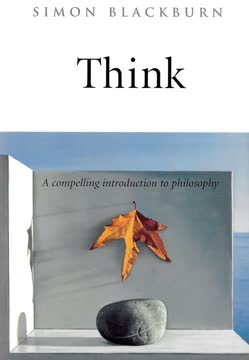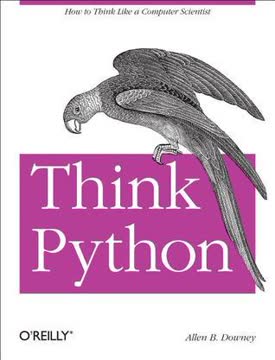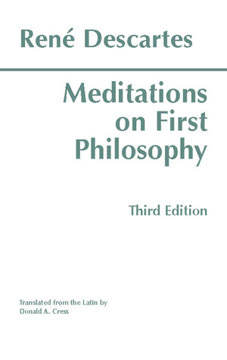Key Takeaways
1. The Mind-Body Problem: How can subjective experience fit into a physical world?
How can such conscious events emerge in biological/physical systems?
A fundamental puzzle. We instinctively distinguish between things with minds and those without. While we categorize physical objects by properties like size or color, the mental realm includes sensations, thoughts, and feelings that seem utterly different from mere matter and motion. This core difference creates the mind-body problem: clarifying the relationship between our subjective mental life and our objective physical nature.
Intimate yet distinct. Mental events seem tied to physical processes (stepping on a tack causes pain), and mental states seem to cause physical actions (wanting a burger causes you to walk to McDonald's). Yet, the subjective feel of pain or the content of a thought appears qualitatively distinct from the firing of neurons or the movement of particles. This apparent intimacy alongside fundamental difference makes the connection puzzling.
Place of mind in physics. The core question is how to accommodate minds and mentality within a world increasingly understood as fundamentally physical, governed by physical laws. This involves understanding how physical processes give rise to mental ones and how mental states can have causal efficacy in the physical world.
2. Substance Dualism: Minds as non-physical souls face the challenge of interaction.
Its inability to explain the possibility of "mental causation," how mentality can make a causal difference to the world, doomed Cartesian dualism.
Two distinct substances. Historically, thinkers like Plato and Descartes proposed substance dualism, viewing each person as composed of two fundamentally different substances: an immaterial mind (soul) and a material body. The mind's essence was thinking/consciousness, while the body's was spatial extension.
The interaction problem. A major difficulty for this view is explaining how an immaterial, non-spatial mind could possibly interact causally with a material, spatial body. How could something without physical properties influence physical particles governed by physical laws? Descartes suggested interaction in the pineal gland, but the mechanism remained mysterious.
Lack of evidence. There is no scientific evidence for immaterial substances. The idea of minds as souls has largely disappeared from scientific and philosophical discussions due to these difficulties and the lack of empirical support, though the problem of mental causation persists for other theories.
3. Behaviorism: Defining mind by behavior alone proves inadequate.
Psychology . . . is a purely objective experimental branch of natural science. Its theoretical goal is the prediction and control of behavior.
Reaction to introspection. Early 20th-century behaviorism arose partly as a reaction against subjective introspectionist psychology, aiming to make psychology a purely objective science focused on publicly observable behavior. Philosophical behaviorism claimed the meaning of mental terms could be defined solely by reference to behavior.
Defining mental terms. Logical behaviorism proposed that statements about mental states could be translated into statements about behavioral and physical phenomena. For example, "Paul has a toothache" might be translated into descriptions of his groaning, wincing, and verbal reports.
Difficulties with translation. This approach faced significant problems:
- Verbal behavior (like saying "I have a toothache") itself presupposes complex psychological states (understanding language, wanting to tell the truth).
- Mental states often only lead to behavior when combined with other mental states (belief + desire = action), making individual mental states hard to define behaviorally in isolation.
- The relationship between mental states and behavior is "defeasible" – any mental-behavior link can be broken by adding another mental state.
4. Mind-Brain Identity Theory: Mental states are brain states, but multiple realization poses a problem.
That everything be explicable in terms of physics . . . except the occurrence of sensations seems to me frankly unbehevable.
Correlation suggests identity. Strong empirical evidence shows pervasive correlations between mental events and brain processes. Brain injuries affect mental life, chemicals alter moods, and consciousness depends on brain function. This suggests the brain is the "seat of the mind."
Identity as simplification. The mind-brain identity theory proposes that mental states are identical to physical states in the brain (e.g., pain is C-fiber excitation). This is seen as an empirical discovery, like water being H₂O, simplifying our ontology and explaining mind-body correlations without needing extra "psychophysical laws."
Multiple realizability objection. A major challenge is the idea that mental states can be "multiply realized" in different physical systems. Pain might be C-fiber activation in humans, but a different neural state in octopuses, or even realized in non-biological systems. If pain can exist in physically diverse systems, it cannot be identical to a single specific physical state like C-fiber activation.
5. Functionalism: Mind is defined by its causal role, like a computer program.
The concept of an engine is specified by a job description, not a description of mechanisms that can execute the job.
Beyond physical structure. Inspired by the multiple realizability argument, functionalism proposes that mental states are defined not by their physical makeup but by their causal role or function within a system. Just as an engine is defined by converting energy to motion regardless of its parts (gas, electric, steam), a mental state is defined by its typical causes and effects.
Causal network. Mental states are seen as nodes in a complex causal network, mediating between sensory inputs (causes), other mental states (causes and effects), and behavioral outputs (effects). For example, pain is the state typically caused by tissue damage and causing winces, groans, and distress.
Turing machine analogy. Machine functionalism models the mind as a Turing machine, an abstract computational device defined by its input-output rules and internal states. Mental states are identified with these internal machine states, which are realized by physical states in a system (like a brain or computer). This allows for the same "mental state" (machine state) to be realized by different physical states in different systems.
6. The Problem of Qualia: Functionalism struggles to explain subjective feeling.
But by identifying sensory events with causal roles, functionalism appears to miss their qualitative aspects altogether.
Subjective experience. While functionalism defines mental states by their causal roles, it seems to miss the subjective, qualitative aspect of consciousness – the "qualia." This is the "what it's like" to feel pain, see red, or smell coffee.
Qualia inversion and absence. Critics argue that it's conceivable for two systems to be functionally identical (same inputs/outputs, same causal roles) yet have inverted qualia (seeing red when the other sees green) or even lack qualia entirely ("philosophical zombies"). If qualia can vary independently of functional role, functionalism cannot fully capture what mental states are.
Intrinsic vs. relational. Functionalism defines states relationally (by their connections to other things). Qualia, however, seem like intrinsic properties – the hurtfulness of pain feels like an inherent quality, not just a relation. Defining intrinsic qualities solely by extrinsic relations seems problematic.
7. Mental Causation: How can thoughts and feelings influence the physical world?
If the mind cannot causally affect physical events and processes, neither practical knowledge required to inform our decisions nor theoretical knowledge that yields an understanding of the world is likely to be available.
Essential for agency. Our everyday understanding assumes mental states cause physical actions (desire for water causes walking to the tap). This mental-to-physical causation is fundamental to the concept of agency – acting for reasons. Physical-to-mental (perception) and mental-to-mental (inference) causation are also crucial for knowledge and rationality.
Challenges to causation. Explaining how mental states cause physical events is difficult, especially for non-reductive views:
- Anomalism: Some argue mental properties don't fit into strict physical laws, yet causation is often thought to require laws.
- Extrinsicness: Mental content (what thoughts are about) depends on external factors, but physical causation seems local and dependent on intrinsic properties.
- Exclusion: If every physical event has a sufficient physical cause (causal closure of physics), where does a mental cause fit in without overdetermining the effect?
8. Consciousness: The subjective "what it's like" remains a central mystery.
It is not an exaggeration to say that the so-called mystery of the mind is largely the mystery of consciousness.
Multiple aspects. Consciousness is a multifaceted phenomenon, including:
- Phenomenal properties (Qualia): The subjective feel of sensations (pain hurts, red looks a certain way).
- Subjectivity/Point of View: The fact that experience is always "for" a subject, apprehended from a first-person perspective.
- Inner Awareness: Being aware of one's own mental states (metapsychological states).
Awareness vs. Qualia. While consciousness as inner awareness might be modeled as an internal monitoring system (potentially explainable physically), this doesn't fully capture the qualitative feel. Being aware that you are in pain is different from being aware of the painfulness itself.
The "hard problem". Even if we fully map the neural correlates of consciousness, the philosophical mystery remains: why these neural states give rise to these specific subjective feels, or why any subjective feel arises at all from physical processes. This "explanatory gap" is the core of the problem of qualia.
9. Mental Content: What our thoughts are "about" often depends on the external world.
Cut the pie any way you like, 'meanings' just ain't in the head.
Representing the world. Intentional states like beliefs and desires have "content" – they are about things and represent states of affairs. How do physical states in the brain acquire this meaning or representational power?
Interpretation theory. One approach views content as determined by how we interpret a system's behavior, attributing beliefs and desires that make the system rational and its beliefs largely true (principle of charity). This links belief and meaning but can lead to indeterminacy.
Causal/Correlational approach. Another view suggests content arises from causal or correlational links between internal states and external objects or properties. A state represents "horse" because it's reliably caused by horses under optimal conditions. This works for perception but faces issues like distinguishing correlated properties (horse vs. horse gene) and accounting for the holistic nature of belief.
10. Physicalism: The debate shifts from substance to property dualism (reductive vs. non-reductive).
Thus, the most widely accepted form of physicalism today combines ontological physicalism with property dualism...
Ontological monism. Contemporary physicalism generally accepts that only physical entities exist in the world (ontological physicalism), rejecting Cartesian substance dualism.
Property dualism. However, many physicalists maintain that mental properties are distinct from physical properties (property dualism). The debate then becomes whether these mental properties are reducible to physical properties or are irreducible higher-level properties.
Reduction via bridge laws. Reductive physicalism aims to show that mental properties can be defined or correlated with physical properties via "bridge laws," allowing psychological laws to be derived from physical ones. This leads to property identities (mental property = physical property).
11. Supervenience: Mental properties depend on physical ones without necessarily being identical.
Supervenience, therefore, looks like just what the non-reductive physicalist has ordered...
Dependence without reduction. Non-reductive physicalism seeks a relationship where mental properties depend on physical properties without being identical or reducible. Supervenience is proposed as this relationship: any two things identical in all physical respects must be identical in all mental respects.
Physical determination. This captures the idea that the physical "determines" the mental – once the physical facts are fixed, the mental facts are also fixed. This respects the primacy of the physical.
Challenges to non-reductive supervenience. However, supervenience faces challenges:
- It doesn't explain why mental properties supervene on their physical bases.
- It struggles to explain the causal efficacy of mental properties without reducing them to their physical bases, potentially leading to mental properties being causally inert (epiphenomenalism).
Last updated:
Review Summary
Philosophy of Mind by Jaegwon Kim receives generally positive reviews as a comprehensive introduction to the field. Readers praise its clarity, fairness in presenting different viewpoints, and thorough coverage of major topics. Some find it dense and challenging for beginners, while others appreciate its depth. The book is noted for its strong focus on physicalism and consciousness, though some criticize the limited treatment of alternative perspectives. Overall, it's considered a valuable resource for students and scholars, despite occasional dry or technical sections.
Similar Books










Download PDF
Download EPUB
.epub digital book format is ideal for reading ebooks on phones, tablets, and e-readers.




